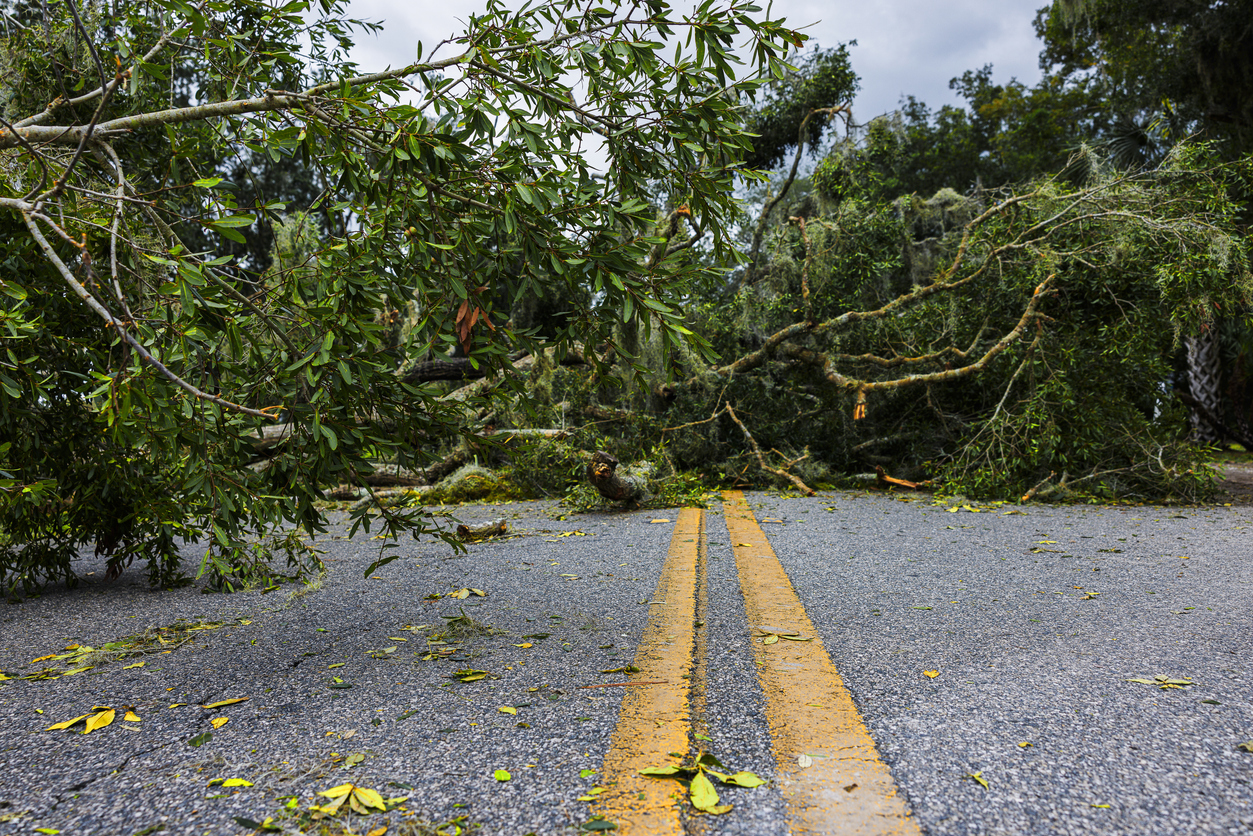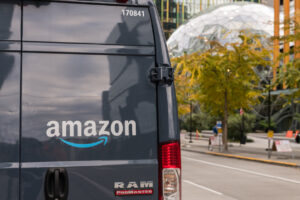The Scoop: Hurricane Helene stresses communications in every way imaginable
Plus: California governor vetoes contentious AI regulation bill; Amazon Prime eyes live news.

Hurricane Helene has devastated a huge swath of the American southeast from Florida to Tennessee, with the mountainous Western North Carolina region facing particular destruction. Tiny towns were swept away in raging floodwaters and the city of Asheville remains largely cut off from the outside world. The Associated Press reported Monday morning that 91 people have died in the storm nationwide, with 30 reported dead in Asheville’s Buncombe County alone, with those numbers certain to rise.
The storm has led to a number of complex communications challenges, including simply that: the ability to communicate. Power lines and cell towers were destroyed throughout the storm’s path, leaving communities isolated and families unable to learn the fate of loved ones. Verizon posted a detailed update of cell service restoration efforts on its website, including region-by-region information and a promise to waive certain charges for affected areas for the next few days.
Politicians from the hyper local level to the president of the United States also worked to share messages of sorrow, comfort and resilience, as well as basic, tactical information on where to find much-needed supplies and information.
Buncombe County Manager Avril Pinder had to share the news that they had not yet established food and water supplies to the area, which saw major road damage that left the area largely isolated from the outside world.
“We hear you. We need food and we need water,” Pinder said on in a call with reporters, according to the AP. “My staff has been making every request possible to the state for support and we’ve been working with every single organization that has reached out. What I promise you is that we are very close.”
President Joe Biden pledged his administration “will continue providing support to impacted communities — for as long as it takes” and will deliver remarks on the hurricane relief efforts Monday. Vice President Kamala Harris cut short a campaign swing in Las Vegas to return to Washington for briefings and will visit the region as soon as her presence will not distract from relief efforts. Former President Donald Trump intends to visit Valdosta, Georgia Monday and has already hit Biden and Harris for their response to the disaster.
Why it matters: This is a deep tragedy that will reshape entire regions of the United States for years to come. The actions and words undertaken now, whether by politicians or companies, will reverberate. And while it may feel too soon to make this a political issue, the fact remains that the presidential election is just over a month away and both North Carolina and Georgia are considered swing states, which both presidential candidates are all too aware of. Yet there is a risk of moving too far into blame and politics when relief efforts are still underway, and names of the deceased are not yet known.
The most important issue right now is getting these people food, water, shelter and safety and beginning the rebuilding process. The ongoing challenge of keeping these regions in the public eye to get the help they need even when the ravenous news cycle has moved on to the next disaster will test the skills of communicators.
In the meantime, please support recovery efforts if you’re able.
Editor’s Top Reads:
- After weeks of deliberation, California Gavin Newsom has vetoed what would have been a major landmark in AI regulation. SB 1047 would have mandated a number of guardrails to protect against rogue AI, including plans for kill switches and holding companies liable for damage caused by the models. Major AI companies, many of which are headquartered in California, opposed the bill and said it could stifle innovation and drive them from the state. “While well-intentioned, SB 1047 does not take into account whether an AI system is deployed in high-risk environments, involves critical decision-making or the use of sensitive data,” Newsom said in a statement about vetoing the bill. “Instead, the bill applies stringent standards to even the most basic functions — so long as a large system deploys it. I do not believe this is the best approach to protecting the public from real threats posed by the technology.” The governor also announced a partnership with a number of leading AI experts and academics to develop guardrails to protect California while fostering innovation. While California has implemented a number of new AI regulations, including against deepfake nudes and election fraud, this sweeping regulation seemed a step too far for the cradle of AI in the United States. The question still remains: Will the federal government take the issue more seriously before a patchwork of regulations is created across the country?
- Streaming networks are eyeing a getting into the news business, potentially starting with the 2024 presidential election. While not yet a done deal, Amazon Prime Video is reportedly looking into an election night livestream hosted by network TV stalwart and NBC Nightly News veteran Brian Williams. Streamers have moved into more traditionally live TV-dominated spaces recently, including sports and live comedy special. News is perhaps the natural evolution, though other attempts at streaming news have failed, such as the ill-fated CNN+. Still, if this works and expands beyond election coverage, it could be a unique opportunity for landing coverage for PR pros at a time when traditional news is struggling.
The Wall Street Journal offered a behind-the-curtains glimpse of how Domino’s built its wildly successful Emergency Pizza promotion. The deal, which entitled loyalty program members to a free pizza within 30 days of making a purchase, took two years to research and implement, including internal financial research, focus groups and pondering how consumers might manipulate the system. The end result was a smashing success, with 2 million new loyalty program members and increased same-store sales 2.8%. What can you learn from this meticulous case study?
Allison Carter is editor-in-chief of PR Daily. Follow her on Twitter or LinkedIn.







